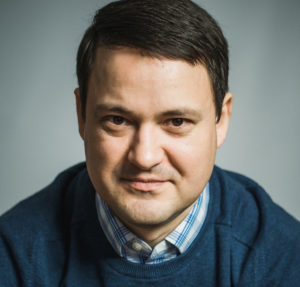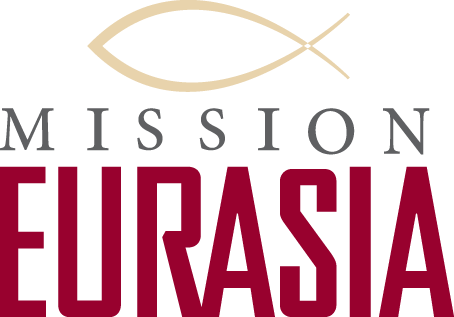Dr. Michael Cherenkov: Churches as Agents of Change in Eurasia
10.05.2018
Churches as Agents of Change in Eurasia
Dr. Mikhail (Michael) Cherenkov, Executive Director of Mission Eurasia Field Ministries
Originally published in the East-West Church Report

Dr. Michael Cherenkov
Russia is once again clamping down on freedom of thought and belief due to a fear of change and Western influence. This time, the leader of Russia is positioning himself as the defender of Holy Rus’ and true Christianity. The situation is eerily close to the 2007 projection of nationalist writer Aleksandr Prokhanov, in which a strong leader will construct a “Fifth Empire” to follow Rus’, Muscovy, the Romanovs, and the Soviets.1 People who are not opposed to the West are once again being viewed with suspicion. In the past they were “enemies of the people;” now they are called “foreign agents.”
“Foreign agent” is a convenient label for individuals and organizations that refuse to conform. But what if these “agents” are able to help Russia and the surrounding region make necessary changes and open up to the rest of the world? We are not talking here about agents who serve another country. We are talking about “agents” who serve the world on a global level and therefore each country individually. A Christian church may be considered a major agent of this type of change.
In these brief reflections, I will highlight just one thought I have regarding the role of the churches in the socio-political processes that are taking place in the region known as Eurasia, that is to say, the cultural space which Russia is seeking to dominate. No matter what plans might be made in the Kremlin, the transformation of this space depends upon the Church. And transformation will happen in spite of the Church going through a crisis–or maybe even because of it, because the crisis of the Church is continual and dynamic.
Why the Church? Because there is no greater force than this. And if society undergoes transformation without the Church, this transformation will only be harmful. People in Russia and neighboring nominally Orthodox countries place their highest trust in the Church. In Moldova, 77 percent of people have confidence in the Orthodox Church.2 84 percent of Belarusians associate themselves with an Orthodox identity.3 With a credibility rating of 48 percent, the Russian Orthodox Church takes fourth place in Russia after the presidency (75 percent), military (69 percent), and FSB security police (57 percent).4 Interestingly, this support for the siloviki – the military and security forces – has grown sixfold over the past five years.
In Ukraine, the situation has parallels but remains strikingly different. According to a December 2016 poll by the Kyiv International Institute of Sociology, Ukrainians place the most trust in the Church (56.7 percent), above volunteers (53.5 percent) and the Ukrainian military (53.1 percent).5 Another trend in Ukraine is that trust in the Church as a social institution is higher than trust in it as a moral authority. According to March 2017 data from the Kyiv-based Razumkov Center, 63 percent have trust in the Church, while only 42 percent recognize its moral authority.6
This brings to mind the gospel plea, “Lord, I believe; help my unbelief” (Mark 9:24). When people say that they “have trust,” what they mean is that they “want to have trust.” Jesus’ disciples also asked, “To whom shall we go?” (John 6:68) Whom can we trust if not the Church? In conditions of a weak civil society and no real political opposition, the Church stands as the only alternative. And even if churches withdraw from civic responsibilities, they inevitably change the status quo. That is why the Kremlin, with the Moscow Patriarchate, is fighting against missionary activity under the cover of the 2016 counterterrorist “Yarovaya” legislation. It is not just that the authorities are afraid of any social activity that is ideologically motivated or uncompromising. Missionary activity changes the religious landscape, which in turn changes public life.
It is thus precisely the churches that can become agents of change in the post-Soviet space, as long as they stay faithful to their mission and set a good example of faith and faithfulness in repressive conditions. This is sure to renew both Church and society.
Renewal takes place when people imagine another world. But today’s young generation has only experienced life in the Putin era. How can they imagine the possibilities of a different kind of life? With no picture in mind of anything different, they may be infected by a destructive state of mind: “We will destroy this world of violence down to its foundations, and then we will build our new world. He who was nothing will become everything!” These words come from the early Soviet translation of “The Internationale,” the socialist anthem. Yet just as a century ago, Russia still faces this simple yet pivotal choice: violent revolution or spiritual transformation.
There are signs of the latter in Ukraine. On 16 September 2017, many thousands of people packed the streets in Kyiv. This was no new Maidan of demonstrations and civil unrest. Instead, the Sviato Podiaki–or Thanksgiving–the new national holiday celebration brought together Evangelicals and curious members of the public. This is the Christian revolution of the spirit. This is where change begins.
We have only one chance in the shadow of the Kremlin. We have to help the Church change for it to unlock its transformational potential and to lift up its prophetic voice. There is no other institution or force that can do this. Churches are both messengers of reconciliation and prophetic voices to the governing authorities.
If the Church does not regain its moral credibility, its missionary activities will have no impact. If we do not want Eurasia to suffer any bloody and destructive revolutionary scenarios, we have to do all we can for the Church to regain its initiative and special calling. If we want to help the countries of Eurasia, we have to start with the Church, including the more conservative churches and the Orthodox Church. All must be open and true to the Gospel.
If we believe in the power of change, we must maintain international partnerships and involve promising spiritual and intellectual church leaders in the opening of new pages in the history of Eurasia, pages of renewal and reconciliation, awakening and transformation.
So let them be called “foreign agents” in Russia. We know better than that: They are international agents of positive change. In this age of new divisions and conflict, the Church is the only universal force that can transcend borders for the common good, build bridges between people, and deliver them from historical downfall.
Notes:
1. Aleksandr Prokhanov, Simfoniia “Piatoi Impirii”, Moscow: EKSMO, 2007.
2. “Tserkov’ sokhraniaet za soboi samyi vysokii uroven’ doverii v Moldavii – sotsiolog,” Interfax, 24 February 2016, http:// www.interfax-religion.ru/?act=news&div=62033.
3. Zmiter Lukashuk, “95% belorusov otnosiat sebia k opredelennoi konfessii, a v boga veriat 64% iz nikh,” Euroradio.fm, 26 December 2017, https://euroradio. fm/ru/95-belorusov-otnosyat-sebya-k-opredelyonnoy-konfessii-v-boga-veryat-64-iz-nih.
4. “Institutsional’noe Doverie,” Levada-Center, 12 October 2017, https://www.levada.ru/2017/10/12/ institutsionalnoe-doverie-3/.
5. “Ukraintsy radikal’no ne doveriaiut institutam vlasti – sotsopros,” Apostrof, 1 February 2017, https://apostrophe. ua/news/society/2017-02-01/ukraintsyi-radikalno-ne-doveryayut-institutam-vlasti—sotsopros/85391.
6. “Tserkva, suspil’stvo, derzhava u protistoianni viklikam i zagrozam s’ogodennia,” Razumkov Center, 2017, http:// razumkov.org.ua/uploads/article/2017_Religiya.pdf.
*Reproduced with permission of the East-West Church Report: www.eastwestreport.org.
